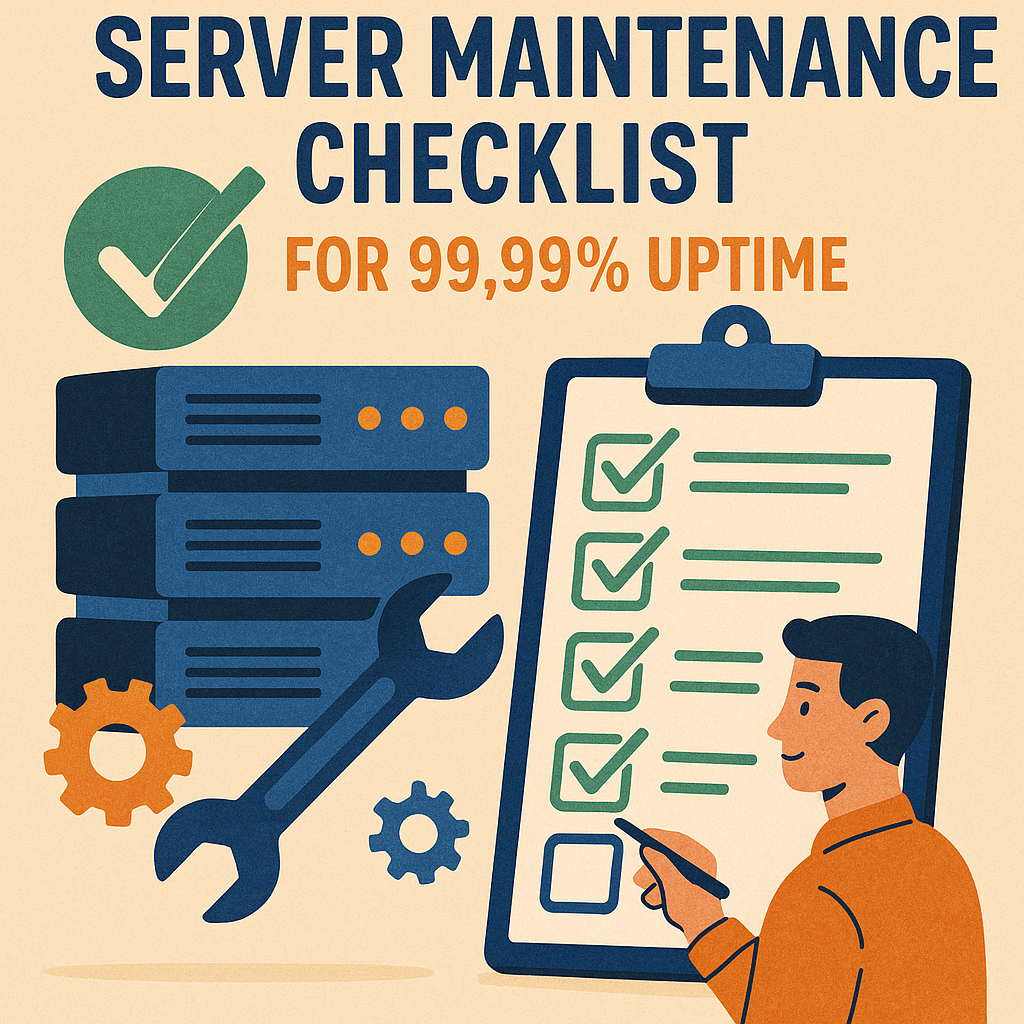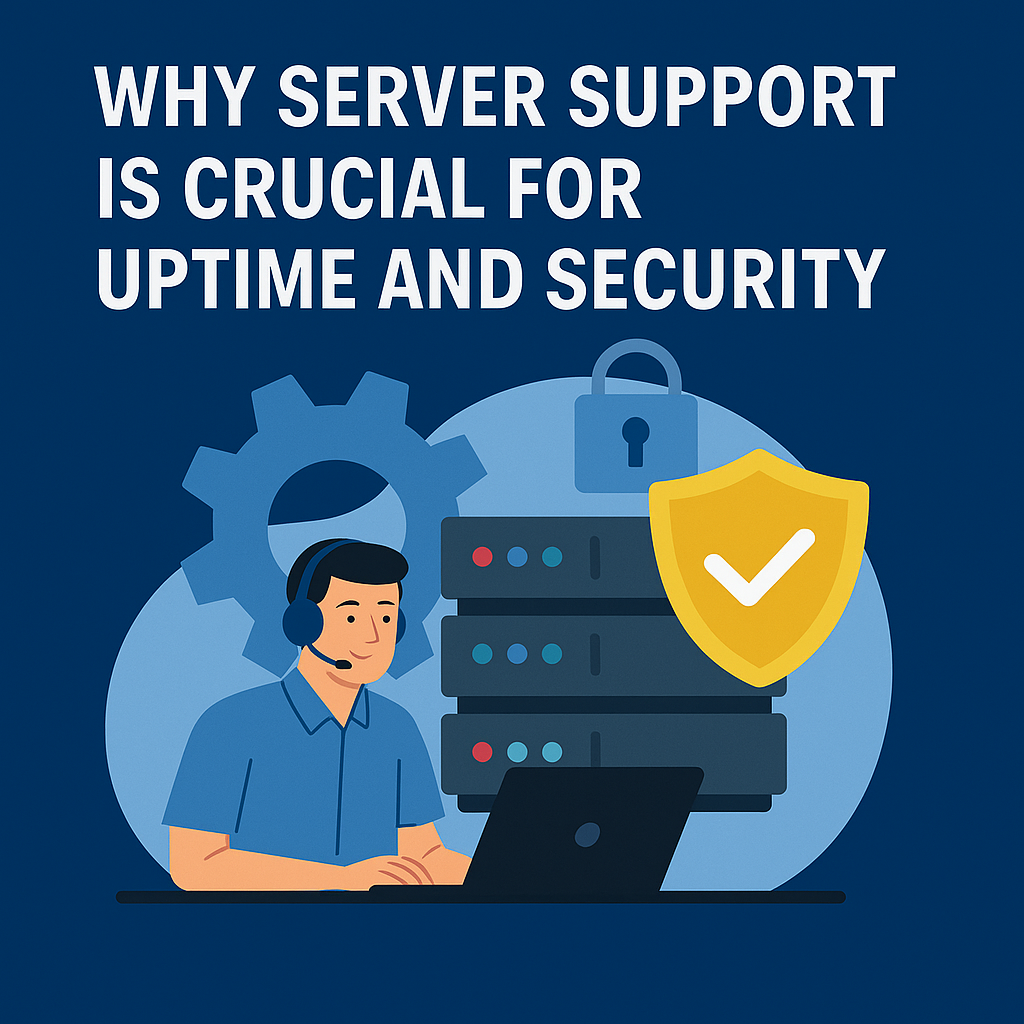Boost Your Uptime: 7 Surprising ROI Benefits of Investing in Server Support
Introduction: Why Server Uptime Is Business Critical
Imagine your business running like a perfectly synchronized machine—until your server crashes. Suddenly, operations halt, customers flee, and revenue takes a hit. Welcome to the harsh reality of server downtime. In today’s hyper-digital economy, even a few seconds of unavailability can spiral into major losses. This is where professional server support steps in—not as an expense, but as an investment.
The ROI of server support services goes far beyond uptime percentages. It’s about safeguarding revenue, elevating performance, boosting security, and maintaining customer trust. Whether you’re running SQL Server 2025, managing hybrid cloud infrastructure, or simply hosting an eCommerce store, server support isn’t a luxury—it’s a necessity.
What Is Server Support and Why Does It Matter?
Server support encompasses a suite of proactive and reactive IT services that ensure your infrastructure runs smoothly. This includes:
- Monitoring server uptime and health
- Performing patches and updates
- Diagnosing and resolving issues
- Conducting security audits
- Disaster recovery and backups
Whether managed in-house or via outsourced server management, these services deliver constant vigilance so your business can focus on growth.
Breaking Down the ROI of Server Support
Investing in robust server support yields tangible and measurable returns:
- Reduced Downtime Costs: According to Gartner, the average cost of IT downtime is $5,600 per minute. Minimizing downtime directly saves money.
- Improved Productivity: Teams work uninterrupted, minimizing workflow bottlenecks.
- Customer Trust and Retention: Consistent uptime builds user confidence and loyalty.
- Cybersecurity Compliance: Hardened environments help prevent costly data breaches.
The truth? You’re not just paying for support—you’re investing in uninterrupted operations, employee efficiency, and brand integrity.
DIY Server Support vs. Professional Server Support
Let’s address a rising trend: DIY server support. Yes, it’s tempting to cut corners and manage servers internally. But without the right tools, training, or time, it quickly becomes a liability.
Risks of DIY Server Support:
- Misconfigured firewalls
- Delayed response to incidents
- Missed patch cycles
- Increased exposure to ransomware and zero-day exploits
Now, contrast that with professional server support, which offers:
- 24/7 monitoring
- Certified engineers
- Detailed audits
- Guaranteed service-level agreements (SLAs)
In this match-up, DIY is reactive. Professional support is preventive—and profitable.
Server Support Myths That Are Costing You Money
Many businesses avoid investing in support due to misconceptions. Let’s bust a few common Server Support Myths:
Myth: “I don’t need server support for a small business.”
Reality: Even a single server running your POS system or website going down can cause a full stop.
Myth: “Support is only for on-prem servers.”
Reality: Support spans SQL Server 2025, virtual machines, Linux servers, and cloud environments.
Myth: “Outsourcing server management compromises security.”
Reality: Most managed service providers (MSPs) use enterprise-grade tools and operate under strict compliance.
Myth: “It’s cheaper to handle support internally.”
Reality: The hidden costs—productivity loss, downtime, reputation damage—can bankrupt you.
Uptime and Performance: Where ROI Becomes Visible
Nothing speaks ROI like performance metrics:
| Metric | DIY Support | Professional Support |
|---|---|---|
| Average Uptime | ~95% | 99.9%+ |
| Response Time | Hours or Days | Under 30 mins |
| MTTR (Mean Time To Repair) | High | Low |
| Risk of Security Breach | High | Minimal |
Add to this the intangible benefits like customer satisfaction and improved SEO from consistent uptime, and the value becomes undeniable.
How to Harden a Linux Server for Better Uptime
If you’re running Linux-based infrastructure, it’s crucial to know how to harden your Linux server. Server support teams typically implement:
- SSH key authentication and port restrictions
- SELinux or AppArmor enforcement
- FirewallD or UFW configuration
- Kernel updates and regular security patches
- Log auditing and anomaly detection tools
A hardened server minimizes vulnerabilities and stabilizes performance—both of which feed back into ROI.
Outsourced Server Management: Smarter Than You Think
Outsourced server management isn’t just a “big company” move. SMBs and startups benefit from:
- Scalability without hiring extra headcount
- Instant access to expertise
- Remote management tools
- Proactive issue prevention
Most providers operate on monthly retainers, often less than the cost of a full-time engineer. The ROI? More uptime, more protection, and more focus on core business.
Server Support Trends to Watch in 2025
Keeping up with Server Support Trends helps you future-proof your IT. Here’s what’s hot:
- AI-powered monitoring that predicts outages before they occur
- Self-healing infrastructure using automated scripts
- SQL Server 2025 enhancements like built-in intelligence and hybrid cloud capabilities
- Edge server management to handle real-time data processing
- Zero Trust frameworks integrated into server security stacks
These trends aren’t just buzzwords—they shape the ROI calculus for modern IT.
How Server Support Enhances Security and Compliance
In a world of evolving cyber threats, regulatory pressure is relentless. From HIPAA to GDPR, businesses must demonstrate they’re secure and compliant.
Server support services ensure:
- Regular vulnerability assessments
- Encrypted backups
- Timely patching of known exploits
- Audit-ready documentation
Security isn’t just about defense—it’s about business continuity and customer trust.
Final Thoughts: Investing Now to Save Later
Waiting until your server fails is like buying home insurance after a fire. Smart businesses understand that server support isn’t a cost—it’s a competitive advantage. Whether it’s maintaining 99.99% uptime, complying with data regulations, or boosting employee output, the ROI is real and measurable.
So, ask yourself: Can you afford not to invest in server support?
FAQs
What is included in professional server support?
It typically includes 24/7 monitoring, patch management, backups, performance tuning, and incident response.
How does server support improve ROI?
It reduces downtime costs, increases productivity, improves security, and ensures better customer retention.
Should small businesses consider outsourced server management?
Absolutely. It’s cost-effective and provides access to enterprise-level expertise without the overhead.
How does SQL Server 2025 impact server support?
SQL Server 2025 introduces intelligent query processing and cloud integrations that require updated support strategies.
Can I harden my Linux server myself?
You can, but hiring experts ensures best practices are followed and risks are minimized.
What’s the most important server support trend to follow?
Predictive analytics and automation. They’re revolutionizing how support is delivered and scaling infrastructure resilience.
Conclusion
Your server is the engine of your digital operations. Without it, everything stops. That’s why server support is no longer optional—it’s strategic. Whether through outsourced server management, adopting server support trends, or finally ditching DIY server support, making the right investment today can multiply your returns tomorrow.





No comment